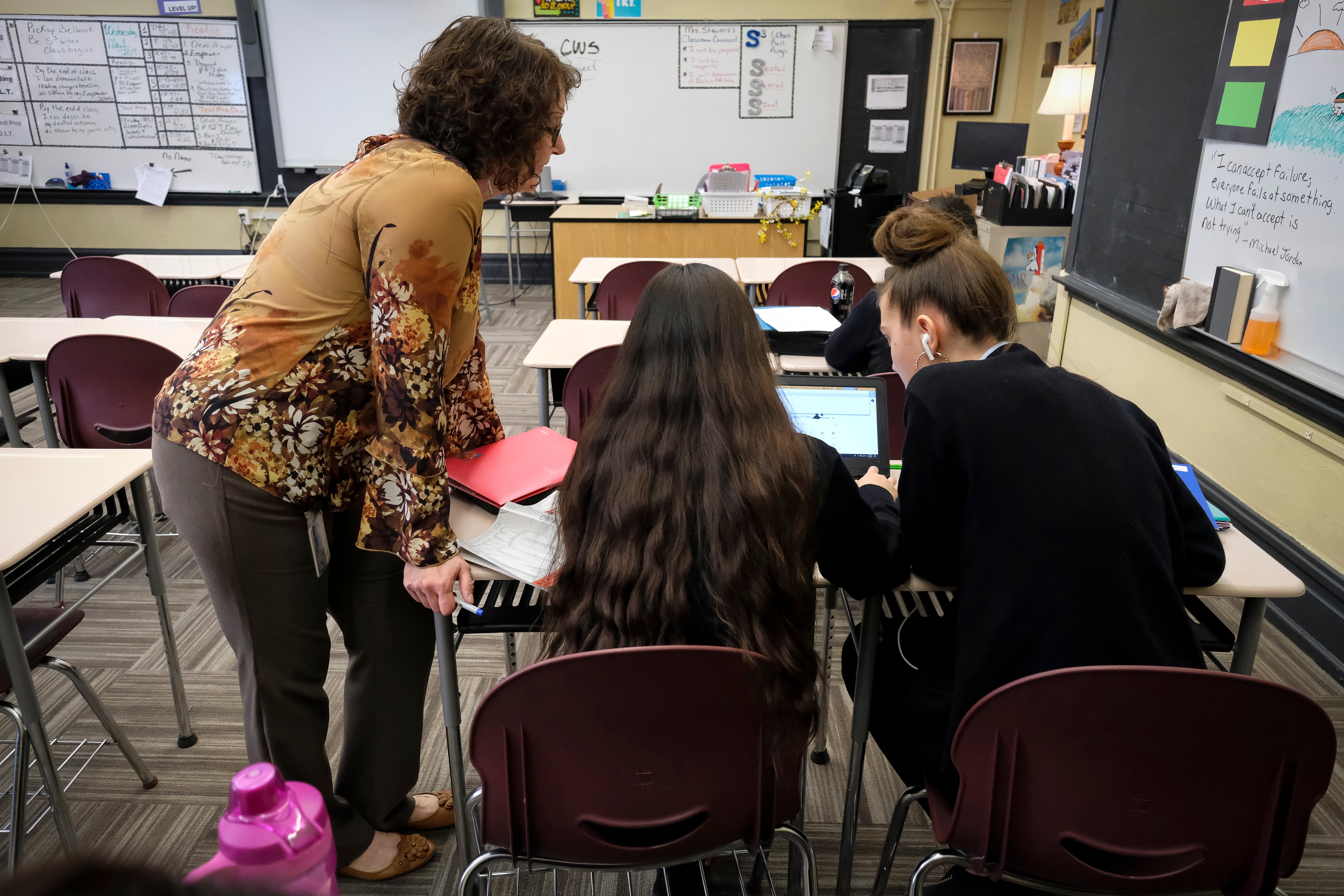Adjunct teacher permits represent the newest pathway to working in Indiana classrooms, following their approval by the state legislature earlier this year. Yet so far, school leaders don’t seem keen on using them to hire people, even amid fears that districts are starting the academic year understaffed.
Adjunct permits require individuals to have only four years of experience in a content area and to pass a background check before they start teaching. They’re similar to recent programs in other states that have put nontraditional candidates in the classroom to grapple with shortages.
Adjuncts also receive their permits directly from school districts rather than the state Department of Education, which stirred controversy during the legislative session over how local school boards would ensure consistent teacher quality.
But no schools have posted adjunct-eligible jobs on the department’s new statewide jobs site since the law went into effect on July 1, said department spokesperson Holly Lawson.
While posting job openings on the site is not mandatory, a presentation to the state Board of Education in June said all but one traditional public school in the state used the platform, which currently shows 1,802 open teaching positions.
Though comparable job openings for last year aren’t available, recent statewide data showed a decline in the number of people entering the teaching profession, and a slight increase in the number leaving it. These trends have led to fears that the teaching pool is shrinking.
Challenges to hiring adjuncts
While it’s possible that some districts have adopted adjunct permits quietly, there are a few reasons why schools haven’t shown more interest in the permits as a solution to this year’s staffing challenges.
First, the permits are new and untested, said Todd Bess, executive director of the Indiana Association of School Principals. To hire an adjunct teacher, a school board would need to vouch for an unlicensed candidate who may have no prior teaching experience.
“Our school boards have to be very knowledgeable about who that person is, and feel it’s the right position,” Bess said.
And finding teaching candidates in general has gotten harder over the years, said Miranda Hutcheson, director of career and technical education at the Greater Lafayette Career Academy, which serves the Lafayette, West Lafayette, and Tippecanoe school corporations.
One week before new teacher orientation, and two weeks before the start of school, Hutcheson was still trying to hire teachers for the computer science and agriculture programs.
For the latter, she sought recommendations from Purdue University, Future Farmers of America, and parents in the agriculture industry — but still found no takers.
“It’s hard to find individuals with that skill set that are willing to come and work with high school students full or part-time,” Hutcheson said. “I have kids that want to take those classes and get those credits, and I can’t offer it to the students, just because I can’t find a teacher. That’s really the toughest part.”
Hutcheson’s program hires primarily traditionally licensed teachers and teachers who have workplace specialist licenses. Like the adjunct teacher permits, workplace specialist licenses are based on an individual’s experience in a certain career field.
But the licenses are managed by the Department of Education, and come with a longer list of requirements and responsibilities than adjunct permits, like a bachelor’s degree or a successful Praxis test. Individuals must also take courses on classroom teaching after receiving their initial specialist permits.
Hutcheson said hiring licensed teachers gives students industry experience and allows the Career Academy to offer dual credit courses in partnership with colleges — something that’s important to the students who enroll.
Indiana code specifies that high school teachers who teach dual credit courses must be approved by a college or university, which typically requires completing certain college coursework.
Though the adjunct teacher permits were aimed at hard-to-fill positions in science and career and technical education, Hutcheson said they wouldn’t work well for the Lafayette Career Academy program since the instructors wouldn’t be able to offer dual credit.
Future role for adjunct teachers
The state expects to release its annual report on the number of active teacher licenses later this year. The 2021 report showed a slight recovery in both the number of active licenses and the number of licenses issued for the first time after a drop in 2020.
The most common workplace specialist licenses were in nursing, with 26 permits issued in 2021.
Bess, of the principals’ association, said there’s hope that the adjunct permits could be useful to schools in the future. While legislators may have intended the permits for science and technology fields, Bess said professionals in fields like law or technical writing could cross into the teaching profession, too.
And schools may need them as they face challenges to hiring. Even fields that traditionally had larger pools of candidates — like social studies and elementary education — have seen those pools shrink recently, Bess said.
He also said some schools are facing a domino effect of established teachers leaving for other districts that may pay more or are closer to home, leaving positions open in smaller and more rural districts.
Bess said there’s more the state could do to attract teachers, like dedicating some of its historic budget surplus to schools, and communicating the good work that teachers are already doing.
“The best thing you can do is hire someone and keep them going and make them the best teacher they could be, versus always having this rotating hiring season,” Bess said.
Aleksandra Appleton covers Indiana education policy and writes about K-12 schools across the state. Contact her at aappleton@chalkbeat.org.





